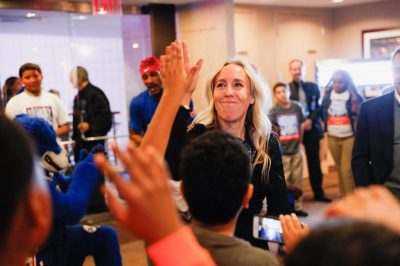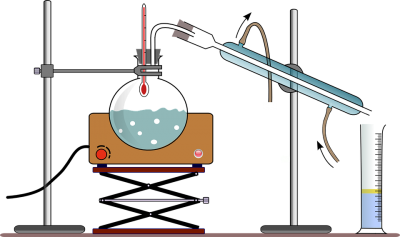Breakfast Club Blog

The BOOST Breakfast Club Blog is a curated space where bloggers from around the world contribute content on a continual basis about a variety of topics relevant to in and out-of-school time. The BOOST Breakfast Club blog is at the heart of an ongoing dialogue where expanded learning and education professionals share their personal thoughts and stories from the in and out-of-school time field. They also tell us what they ate for breakfast!
The BOOST Breakfast Club Blog is Brain Food for In and Out-of-School Time Leaders!
Interested in becoming a blogger? Email [email protected]
Click here to Register for a free account or click here to Login to your existing account.
Bring a Strength-Based Approach to the Way You Communicate
Recently, I was reading program descriptions and program plans which included goals. As always, I was impressed with and proud of what afterschool program staff are able to accomplish and what they strive to do. One thing gave me pause. Deficit language reared its ugly head in more than a few of the program descriptions and plans. I realized that as a field we often talk about using a strength-based approach in our program activities and in our relationships with youth and family. Yet, we have h...Read More
5 Tips for Educators To Help Students Under Pressure
I remember when I was teaching that there were distinct times of the year when kids exhibited high stress and anxiety as it relates to completing assignments. It was common to see students, usually in gifted programs, bogged down with the pressures of academia. We took it as the norm – school, studying, and exams can be stressful. Today, however, many more students are feeling the pressures of school and the result can be daunting and, for many, debilitating. A 2018 study from Pew Research Cente...Read More
Brain-Friendly
One key feature of engaged student learning is ensuring that the programs we offer are brain-friendly. Let’s examine four components that can be integrated into learning practices. Acknowledgment If it’s Worth Doing, it’s Worth Celebrating Pride, pleasure, and increased feelings of self-esteem are all common reactions to being paid a compliment or receiving positive feedback. Why? Because being praised triggers the release of dopamine (a neurotransmitter that helps control the reward and pleasur...Read More
Navigating Kids Short Attention Spans
If you work with children, you are familiar with the challenges of navigating their short attention spans. While it’s easy to merely label young children as “unfocused,” there are a variety of developmental challenges that interfere with a child’s ability to maximize their attention for a long period of time. Luckily, there are some time-tested program strategies that can help to overcome these challenges and maximize children’s focus, attention, and engagement with a physical activity program. ...Read More
Kids Are Natural Scientists—Let Them Take the Lead!
Science is based on curiosity and finding evidence. Giving kids opportunities to roll up their sleeves and understand the world around them by looking for evidence is a great way to be a “guide on the side” rather than a formal teacher or science expert. By letting the children lead, watching what they do, and asking questions, you empower them to follow their natural curiosity. By encouraging them to help one other and share ideas and materials, you help them build important social skills. Scie...Read More
Collaboration, Gratitude and Birds (Yeah, Birds!)
As we enter the holiday season, I’m thankful to be coming up on my 10th year at the Alliance for a Healthier Generation. As Director of Community Partnerships, I have the unique pleasure of cultivating relationships to engage communities in promoting children’s health. For this article, I wanted to share three collaborations that I am particularly excited about – each with resources I hope you can use to bring wellness to life in out-of-school time while engaging families and empowering children...Read More
Taming the Beast – Hip Hop in After-School
I love hip hop music. I love love love the songs on the radio. I love probably the worst of the worst. I love even the songs that treat women like sex objects and I’m a feminist through and through. I just love the sounds and the beats, and the spirit hidden under the layer of words that to me feel like a front, an inheritance of our culture and the roles that are being played out of ignorance and habit. But the truth is, even though I love these songs and sing them out loud in my car, I d...Read More
Demystifying the LCAP for Expanded Learning: FUNDING Explanation
The California Department of Education asks school districts to produce Local Control Accountability Plans (LCAPs) as evidence of appropriately using Local Control Funding Formula (LCFF) dollars. Every district must submit this plan in order to spend these dollars. Here’s my question: Is your Expanded Learning program written into your district’s LCAP? I know some of you out there are asking me, “bruh, why should I even care if my program is in this LCAP thing?” Simple. Y...Read More
Moveable Game Jams
This Breakfast Club blog post is a follow-up to Afterschool Game Jams! which I wrote last August 2016. In it, I described what game jams are, including the “Moveable Game Jam” initiative. Much has happened since then, and I am excited to share it all with the BOOST community! What Are Game Jams, Anyway? Game jams typically take place over a weekend, and involve a theme, or specific content area. For example, this spring, NOAA is hosting an Arctic Climate Game Jam, in which participan...Read More
Igniting Students’ Passion to Learn Through National History Day
Due to the nature of my work as a researcher and evaluator, I do not work directly with students. My classroom and out-of-school time visits usually involve me sitting in the back as a non-obtrusive visitor noting the interactions between the teachers and students. Typically, I will note the types of questions students ask and how the teacher responds. At the end of the session, I thank the teacher for letting me observe the classroom, and that usually ends our interaction. That being said, it i...Read More













